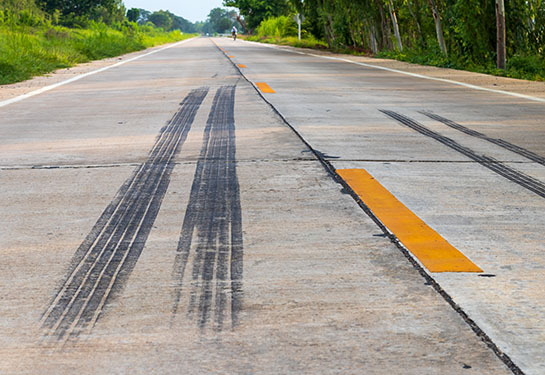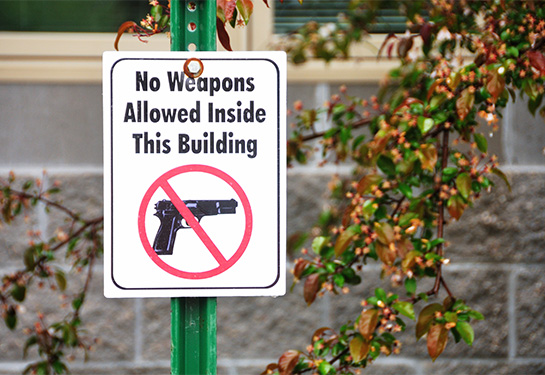Handgun purchasers with a prior DUI have a greater risk for serious violence, study finds
Legal purchasers of handguns with a prior DUI conviction have a greater risk of a future arrest for a violent offense -- including murder, rape, robbery, and aggravated assault and for firearm-related violent crimes -- a UC Davis Violence Prevention Program (VPRP) study has found.
The study published online in the Sept. 30 issue of JAMA Internal Medicine. An invited commentary by Elinore Kaufman entitled “Reducing gun violence using alcohol-related convictions” appears in the same issue.
“Alcohol use is a well-established risk factor for firearm violence,” said Rose Kagawa, assistant professor of emergency medicine and first author of the VPRP study. “Our study suggests that handgun purchasers with a DUI conviction on their record at the time of purchase have a higher incidence of future violence and crime compared to purchasers without DUI convictions.”
For the study, the VPRP team used the California Department of Justice Dealer’s Record of Sale database to identify everyone aged 21 to 49 who legally purchased a handgun in California in 2001. The age range reflects the facts that handgun purchasers in California must be at least 21 years of age, and criminal behavior among persons aged 50 and older is relatively low.
Using records from the California Department of Justice Criminal History Information System, they identified arrests for violent crimes following the first purchase in 2001 (+10 days to account for California’s waiting period) until the end of 2013 or until they could no longer confirm the purchaser was alive and residing in California. Those with at least one DUI conviction on their record at the time of purchase were compared to those without.
“Of the 78,878 handgun purchasers in California whose criminal records we tracked during 13 years, 9% of purchasers with pre-existing DUI convictions were later arrested for murder, rape, robbery or aggravated assault. This is compared to 2% of purchasers with no prior criminal history at the time of purchase,” Kagawa said.
“When we compared purchasers who only had DUI convictions and no other arrests or convictions with those who had no criminal history, a DUI conviction was associated with more than double the risk of future arrest for a violent crime," she said.
California law prohibits individuals convicted of certain violent misdemeanors from legally purchasing a handgun within 10 years of conviction. As a result, they were not included in the study.
The study expands on VPRP research published in 2018 that used data on handgun purchases in 1977 and tracked arrests for violent or firearm-related crimes through 1991. While the sample size included only 4,066 purchasers, that study also associated risky alcohol use, mainly DUI offenses, with arrests for future violent crimes.
The UC Davis study, “Association of prior convictions for driving under the influence with risk of subsequent arrest for violent crimes among handgun purchasers.” along with the invited commentary “Reducing gun violence using alcohol-related convictions” published Sept. 30, 2019 in JAMA Internal Medicine. doi:10.1001/jamainternmed.2019.4498. Copies of the papers also are available by contacting the JAMA Network office.
Other authors of the study include Garen Wintemute, Susan Stewart, Mona A. Wright, Aaron B. Shev, Veronica A. Pear, Christopher D. McCort, Rocco Pallin, Rameesha Asif-Sattar, Sydney Sohl, Philip H. Kass, all from UC Davis; Magdalena Cerdá of New York University; Paul Gruenewald of the Pacific Institute for Research and Evaluation; and David M. Studdert of Stanford Law School and Stanford University School of Medicine
The research was funded by the National Institute of Alcohol Abuse and Alcoholism (1R01AA023551-01A1), California Wellness Foundation (2014-255), Heising-Simons Foundation (2016-219), and the Robertson Fellowship in Violence Prevention Research. Funding from the National Institutes of Health was not used in developing and describing the policy implications of the findings from this research.
The UC Davis Violence Prevention Research Program (VPRP) is a multi-disciplinary program of research and policy development focused on the causes, consequences and prevention of violence. Studies assess firearm violence and the connections between violence, substance abuse and mental illness. VPRP is home to the University of California Firearm Violence Research Center, which launched in 2017 with a $5 million appropriation from the state of California to fund and conduct leading-edge research on firearm violence and its prevention.




